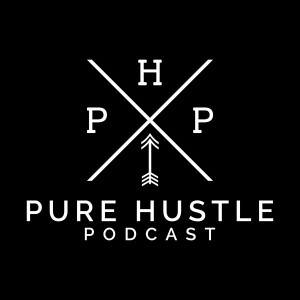

149 - Designing a Self-Managing Shop and a Life You Actually Want, with Tracy Cotton
Show Summary:
This episode features Tracy Cotton of Santa Cruz to talk mountain biking, mentorship, and building a self-managing Japanese-specialty shop. Tracy shares how a bankrupt dealership-adjacent shop turned into his business overnight, why he narrowed to core Asian makes, and how interviewing classic Toyota owners protects culture and margins. He digs into team structure, bonuses, and the autonomy that lets him step away for days without a call. The two unpack coaching that “hurts your feelings but tells the truth,” the BAR surprise visit his team handled flawlessly, and Tracy’s next chapter: rekindling passion, potentially selling to his leadership duo, and maybe coaching. They close with a big wish for the industry: unite independents under one strong voice and defend the right to repair.
Host(s):
Jimmy Lea, VP of Business Development
Guest(s):
Tracy Cotten, Owner of Mick's Automotive
Show Highlights:
[00:02:10] - Toyota T-TEN grad to shop owner after a sudden bankruptcy, buying the business for about $23K nearly three decades ago.
[00:08:39] - From “we worked on everything” to a focused Asian lineup, and why Kia and Hyundai no longer fit his model.
[00:11:22] - The interview policy for classic Toyotas, with a paid maintenance inspection required to ensure commitment and protect culture.
[00:13:15] - Saying no to “PSS” cars keeps morale high, procedures consistent, and the brand promise intact.
[00:14:24] - Six lifts in roughly 3,900 sq ft, landlocked in Santa Cruz, and zero interest in a second location by design.
[00:20:45] - Delegation rhythm that grows a 21-year-old from apprentice to full tech while the foreman orchestrates workload.
[00:21:35] - BAR shows up while Tracy is away, the team handles everything, corrects the ask, and documents the win.
[00:28:50] - Team bonuses versus individual drive, attempts to nudge a steady 30–35 hour tech higher, and the tradeoffs of roster changes.
[00:37:15] - A wish for one unified voice for independents, better technician economics, and a strong right to repair.
In every business journey, there are defining moments or challenges that build resilience and milestones that fuel growth. We’d love to hear about yours! What lessons, breakthroughs, or pivotal experiences have shaped your path in the automotive industry? Share your story with us at info@wearetheinstitute.com, and you might be featured in an upcoming episode.
Don’t miss exclusive insights, expert takeaways, and real talk you won’t hear anywhere else. Hit Subscribe, drop a comment, and share it with someone who needs to hear this!
Links & Resources:
- Want to learn more? Click Here
- Want a complimentary business health report? Click Here
- See The Institute's events list: Click Here
- Want access to our online classes? Click Here
________________________________________
Episode Transcript Disclaimer
This transcript was generated using artificial intelligence and may contain errors. If you notice any inaccuracies, please contact us at marketing@wearetheinstitute.com.
Episode Transcript:
Jimmy Lea: Hey friends, good to see you. My name is Jimmy Lee. I'm with the Institute for Automotive Business Excellence, and this is the Leading Edge podcast. Super excited to have you here with us today, and my guest today is Tracy Cotton. Tracy, how the heck are you, brother?
Tracy Cotton: Doing awesome. Doing awesome. Another beautiful day here in Paradise.
Jimmy Lea: It is. It is a great day, isn't it? Now you, we were just talking. You love mountain biking. I am a road biker, so I have my Marin. That I go for long rides on the bike. Me and Dave Cusa hook up every once in a while, go riding you and tsu. Did you guys go mountain biking here for a minute?
Tracy Cotton: Yeah, so he came up for the A SCC meetings.
We rode around here in Santa Cruz and then took off to Truckee and after the meetings, Truckee and Mammoth and went mountain biking and yeah, it was all good. All good time to get some sweat out. Pound the pedals so I don't pound other things, you know? Yeah. It was all good.
Jimmy Lea: Well, good. And how was the meetings?
How was the association?
Tracy Cotton: Good. I've got friends that have been trying to get me into it. I've kind of gotten out of going to training, meetings, groups and everything. Last two years. 'cause I've been in 'em since day one. Day one. And I just needed to step back and, you know, with my own thoughts.
They was good. It's good. It's, I'm thinking of joining it, you know, California needs more support, you know, so highly likely. I will.
Jimmy Lea: Well that's wonderful. You know, and it's great that you've been such an avid. Advocate for the industry and the association for so many years. I know it's not just been a few, it's been a lot.
And it's okay to take a minute to take a knee and say, Hey man, I gotta catch my breath. I need to take a break. Yeah. And do that. And as you come back in, realize where are those boundaries? When is it become too much? When, and you know, these things. Yeah. Yeah. That's good. That's good. Well, Tracy, how did you get started, speaking of being in the A-S-C-C-A for so long, but in the automotive industry?
How did you get started in the automotive industry?
Tracy Cotton: Well I actually went to school to become a mechanical, what I call technician, which is, goes out in the field and builds what the engineers build, has engineering, you know, got engaged, dropped outta school because that didn't work. That fell through.
And had to get going something. And I'd been, I've never had a job out of the automotive field, gas stations, tire shops. I was a wholesaler to Napa for a while and said, Hey, I gotta do something with my life. And went to school. I actually got a grant or by the Toyota was one of the first Toyota T 10 graduates, way back when, you know.
Took off running with that. Moved to Santa Cruz and after the dealers, one of the guys that I bought my shop from was working at the dealer 'cause he did what a lot of people did was jump in headfirst into a shop, not knowing what to do and, yep. I he was a parts soul set. He was the parts manager, so he was going around to the dealers to help them.
Found me, stole me from the dealer. And then a year, just over a year later, he declared bankruptcy. Yeah. So terrible. Yeah, I was taken off on vacation. He called me two days later 'cause I was, it, I was managing, working on it and every, not, I wouldn't call managing it. I was running the day to day things and he's like, no, we're shutting it out.
I'm like, what? He's like, no, we're shutting it down now. Not while you're gone on vacation. So. Three days later I didn't go on vacation and me and my girlfriend stayed and three or four days later I basically bought the shop from the wholesale. This is, you know, and, you know, took off on vacation anyways 'cause I figured I wouldn't have time.
And, a week later I was running a shop, so, yeah. Oh, so you bought the shop you were working in? Yeah, well he declared bankruptcy and yeah, so we bought, you know, wrote everything out, wrote him a check. For the, what the, to satisfy the bankruptcy courts. And then wrote his mom a check for the business, so the bankruptcy court wouldn't take it.
And basically I got a established business for 2220 $3,000. But now, this was 28 years ago.
Jimmy Lea: Well, so translated maybe today it's $300,000, but still it's one heck of a deal.
Tracy Cotton: For the people that are looking to run a second or third shop to get an established shop, then yeah, this was, he established, you know, I knew the numbers.
Called my dad up and said, Hey dad, I'm, I've got this opportunity. I just bought a house. I go, I don't need the money, I just need the confidence. If I do need the money, I can come to you to borrow money. You know? And he said, yes. He goes, well, you gotta gimme. Gimme some type of outline. I, you know, back then put it on Word, sent it to him.
He is like, okay, take off. You know, and I took off running, you know, so, and then I started with. Business mentors from day one.
Jimmy Lea: Who were your mentors who helped you?
Tracy Cotton: Well, at first some guy that I fired because he just didn't understand things. And a guy named Mike Sers, which I believe passed away.
Yeah, he was in and stuff. And then I joined the World PAC groups. Right. Yeah. One meeting before Cecil took over. Oh. And I'd actually gone to a meeting with Cecil, one of the classes early on. And, you know, he was, you know, and then actually I think Cecil took over on the first class that's been 15 ish years ago.
So, yeah. And joined the world Pac business groups when it was way back way, way back when, you know. Yeah. And yeah. Took off running.
Jimmy Lea: So what did you think of Cecil's? Classes in the the World Pack group, the smart groups. I've heard mixed reviews, so I just wanna preempt that. You can say whatever you want.
Tracy Cotton: Yeah. It got me where I am now, you know? Yeah. Congrats. I mean, Cecil's and no holds bar puts it out how it plainly, whether you like it or not. Yeah. But if I'm running a business and I need, and there's something going wrong and I'm not seeing it, I need to know that. So I don't know. I don't want to say I don't care how it's put, but I want it put, I don't want somebody holding back or anything because that's not what a coach is for, you know?
Yeah. So, yeah. He hurt my feelings multiple times, but you know,
Jimmy Lea: but you're stronger for it, right? Yeah. Is what I'm hearing.
Tracy Cotton: Yeah. You know, at that stage, if you're running a business and you can't get your feelings hurt, then you Yeah. And it wasn't, it's not that. And it's, other coaches have done it too.
It's not, he didn't go out to hurt my feelings. Yeah. He put it plainly and my feelings were hurt because it was the truth, you know? Yeah. So, yeah, it wouldn't be, you know, like I said, if it wasn't for Cecil, and I don't wanna brag on him because I know this is, you know, through the institute. If it wasn't for him, I wouldn't be where I am now.
You know? My business wouldn't be where it is now. Now I had to listen to him and I had to do the work. Yes. But he gave me, made it easier, you know? Nice. To give me the information, you know, so, yeah,
Jimmy Lea: dude, that's extraordinary. And when you're just starting out, you don't know what you don't know.
Tracy Cotton: Yeah.
Jimmy Lea: Right. You know what you know. You know, there's things you don't know, and then there's things you don't know that you don't know. Yeah. And it's where a good coach is gonna be able to come in and help you navigate all that red tape.
Tracy Cotton: Yeah. And get you to do the pri, the priorities, you know? Yeah. Not just get the low hanging fruit, but some of the harder fruit, you know?
Jimmy Lea: Yeah. Yeah. That's so good, dude. Oh man. I'm excited that you were able to work with Cecil and get things started. Yeah. Yeah. That's really good. And so when you started, what was the footprint of the shop? What did it look like?
Tracy Cotton: Well, it was, the guy was a do it all because he didn't know he came, the guy, the, he was the parts, whole parts and service wholesaler, a Toyota dealer.
And he did it all. I came in, he pulled me. I knew Toyotas, I was a Toyota Master Tech. I never. I'd worked at the gas stations and stuff like that, but I'd always just, I was a lube tech type thing. Yeah. If you wanna call it back then. Yeah. And so I worked on most everything, but as I got busier, I just made it Japanese and I just started cutting cars off, you know?
I worked on, you know, the Europeans here and there 'cause I could get it done when I wasn't so busy. Dropped them for just doing more Japanese, got my marketing going. I worked on American cars and then when I got busy enough I dropped them and then got busy enough. I dropped Mitsubishi, got busy enough, dropped a Suzu, you know, and you know, so now we just work on the main Asian cars.
And Kias. And Hyundais, and I think we're busy enough now that I'm probably gonna drop Kias and Hyundais. Just 'cause those customers, they're unique. When they have a unique problem they suck a lot of time and those customers don't want to pay. To get it repaired so we're, you know,
Jimmy Lea: properly, they don't want to pay to get it prepared, repaired properly.
Yeah. There you go. Looking there it's a totally different mindset. I totally agree with you. Yeah. My wife has a Lexus. What does it need? Okay, good. Let's get it done. Yeah. It, this vehicle is darn near in pristine condition. Yep. And it's about three years old and it's almost got 75,000 miles on it, so.
We drive it a lot, we take care of it a lot and it's in really good condition. So it's a different mindset. I totally agree with you in dropping Kia and Hyundai. Hyundai, yeah. It's different client, different mindset, different customer. Yeah. So you work on mostly Toyota, Honda.
Tracy Cotton: Lexus, Subaru, Nissan, Infiniti, you know, Nissan in, yeah, no.
And then we're really 2005 and newer. And then you know, their Toyotas and Hondas will do 2000 and newer, and then anything older than that they have to, if it's a Toyota truck, you know, Tacoma Land Cruiser, we actually have the customer come in. And either me or my manager interview 'em before we'll work on it.
So we make a date. What? Yeah, we make an appointment. They come in, they know they're gonna be interviewed. And we interview them to make sure, well, the Tacomas and Forerunners and Old Land Cruisers, we wanna make sure that they're gonna invest it in the car. And if they're not worthy vest to come down to an interview, then you know, then you're not, we.
Yep, you're right. Get it outta here onto the next. And then we explained to 'em very nicely, we're gonna be expensive. But you know, we're gonna get it done right? We're gonna get your car inspected, you know, we're gonna get it done. You know, if it's diagnosis, they're gonna pay for a maintenance inspection upfront.
Yes. Yet we're not doing anything without doing a maintenance inspection. We're not gonna give 'em the free courtesy inspection and then whatever else they want. And doing it that way on these classic Japanese cars that we still work on, the tacos, the pickups, you know, you know, we get some very good customers out of it, you know, you know, and then, you know, take it from there.
They
Jimmy Lea: appreciate are you saying that they appreciate the interview?
Tracy Cotton: Most of them that wanna invest in the car, yes. But the customer that we don't want doesn't, and so, you know, two thirds of the people come down, make an appointment. Yeah. You know, the others don't appreciate it or whatever, and go somewhere else.
And that's fine. And that's
Jimmy Lea: okay, sister, brother. That's fine.
Tracy Cotton: Yeah.
Jimmy Lea: Yeah. You've probably got your favorite Toyota shop that you wanna refer 'em to and you just send 'em on down the road?
Tracy Cotton: No, I send 'em down the road. The guy, the other Toyota guy in town I like. Oh okay. Yeah. And then my technicians appreciate it too.
'cause we're not being bringing PSS in. I mean, they still get by, but you know, it's not eaten every, my service writer, my service manager. Yeah. Don't get all upset because we're bringing these cars in that everybody's wasting their time energy on. Yeah. And not getting payback on, you know? Yeah. And it's not that.
It's the bonuses. They all get bonused on it. They want to help the customer, but when a customer comes in and they don't want our style, help you do that too much. And then the, it's harder to keep your people following. The procedures and the more following the company culture. You bring in a bunch of PSS in and your company cultures.
We do the best. We stand behind the best, we are the best, you know, type thing. And you're bringing all these PSS in and you're not doing anything to 'em. What do you think your people are gonna do? They're gonna believe in that company culture.
Jimmy Lea: Not anymore. No. Goodness sakes. No, you're hitting it right on the head.
Yeah.
Tracy Cotton: So.
Jimmy Lea: So with with your shop, have you grown? Did you move? Are you in the same location?
Tracy Cotton: I've been going to the same location for 29 and a half years. So, I worked for the guy for a year and a half before, it's 28 years. No, my building, the owner who passed away a couple years ago, him and his wife that went to this.
Son and daughter. I'm good friends with the son. He's a couple years older than me. Then it's gonna go to the grandkids, the wishes. There was no hopes of me buying that property. Okay. Santa Cruz in California, it's hard. Santa Cruz would be one of the hardest places to put automotive. I've had chances of buying properties three to five years to get it re permitted if it will get re permitted for automotive.
So I put my investments other places. Good for you.
Jimmy Lea: That's awesome. Yeah. If you can't buy your property, there's other things you can invest in. And the business, you can just run the business. Run the business. That's a beautiful thing. Well, congratulations. Have you expanded the business at all?
Tracy Cotton: Yeah. 'cause when we moved in there, there was three lifts, 4,000 square foot. It was me, then it became me and. The guy that was working for the shop before it went, he, it changed over and then he left. And my shop foreman, who I've known for since the sixth grade has been with me, I've now gotta start looking and figuring out a 25th year.
Winning or not anniversary. He's been with me for 25 years. We've known each other for since the sixth grade. So that slowly, yeah. Yeah. I know. Can't get rid of them if I wanted to and I don't want to. So, and then slowly got another tech, put another lift in, you know, worked it that way. You know, I was doing everything about.
12 years ago a little longer than that, I hired somebody just to answer the phones. And then my manager, it's going on 15 years blue hired him to do those things and now he manages the shop and we've got now three techs, a shop porter service writer, bloom the service manager, and he writes about a third of the, a third a little bit, maybe about a third of the service. 'cause my service writer is, he's slow, but he's awesome. So he can't quite get it all done, but he does everything that Blue can still manage the shop, you know, and, I go in and kind of do what I want. If there's a classic car that comes in, I'll still work on it that I like.
There's some old Toyotas, believe it or not, there's some tricks to 'em that I still know. And then if we get way busy, I mean, you know, I, they've sold too much and we don't wanna reschedule people, then I'll get out there and. Get things caught up and work here or there to get things caught up when we just get so backlogged, you know?
You know, so, right. Yeah.
Jimmy Lea: Well, so how many lifts do you have now?
Tracy Cotton: You start
Jimmy Lea: six. Six, we
Tracy Cotton: got six and a 3,900 square foot shop. One of 'em a scissor lift, but it's one of those full height scissor lifts. They've been out for a while. It's awesome. But yeah, it's a unique situation. When my parking and everything, when you pull into all the way to the back of the shop, you gotta back the car.
There's one way to get in all six lifts. You gotta pull back all the way out past all the parking and then out, you know, and it is what it is, you know? So it works. I've looked at moving other places, but, your landlocked.
Jimmy Lea: Yeah. You, I mean for you to move would be buying a second location or something like that, because the properties are grandfathered and if you don't get a grandfathered station,
Tracy Cotton: yeah,
Jimmy Lea: you're not gonna get it.
Tracy Cotton: Yeah. And for me, a second, shop's never. It hasn't been on the field for a long time. It's not what I want to do.
Jimmy Lea: No attraction
Tracy Cotton: for you?
Jimmy Lea: Yeah.
Tracy Cotton: No. Nope. Everybody's, Hey Tracy, you should do it. Should do it. Nah, I've got some buddies that done it. It's just not what I want to do. Okay? 80% of the time I enjoy what I do.
And then the other times I gotta, right now I'm having to learn to find that passion again. And I'm working on it, you know, 28 years I'm working on it, you know, it's, you got, I'm having to, you know, go out there and figure it out, you know.
Jimmy Lea: Well, good for you. Yeah. That's good. So, what is a problem?
Well, let's see, let's go back into leadership. Talk about leadership and management. You've been running the shop for 28 years. You've got some great teams in place. What type of mentoring, coaching, training did you provide for your shop foreman? Service manager. What did you do for them?
Tracy Cotton: The shop foreman, not much.
He could use some more training, but I've never just seen. Any training for shop foreman out there. He gets his technical training and he's pretty good at delegating work. 'cause we hand out the schedule the day before he gets it, you know, the schedule three quarters of the way through the afternoon and he goes and sees what works left over what needs to do.
We've got an awesome, I've got the unicorn. 21-year-old. Tech. He's not an apprentice anymore. He was an apprentice when he got with us about a year and a half ago, but I'd call him a full tech now. You know, he gives him that work and stuff like that, you know, okay, hey, here's the diagnosis, and he, then he lets me know if there's a diagnosis and he's too busy to help guide him along.
Wow. And then I'll go out there and, you know, so that's what he does. Blue is been to multiple seminars, classes. He did the through the institute. He was in the manager's course or whatever it was called. I forget the term, what it was called.
Jimmy Lea: Is it the MPG? The manager Performance group.
Yeah. There you
Tracy Cotton: go. There you go. He was in that for a while. And then we had some things around the, for him personally that we pulled out and stuff. Yeah. So, and then with the crew we've got now it's, I mean, my other tech's been with me close to 10 years. You know, it's the shop pretty much self-manages itself.
As we were talking before this, I was gone for a week. I just got back. Today was my first day since last Wednesday, and I left at about noon. I did not hear from my shop at all. At all. All that's so awesome, dude. That is so awesome. And then I forgot my dog that goes to work with me. My wife works Tuesdays and Thursdays, so we can't leave her at home.
She's an elderly dog. I forgot to ask him day, can you bring her home? She dropped the they, she dropped the dog off and you know. I forgot to tell him, Hey, bring her home. He brought her home and let her in the house for me and, you know, and so, you know, when my wife got home and stuff, so yeah if you get it done right, 90, 95% of the time when I leave, it doesn't ha I don't hear from 'em.
And we had a the Bureau of Automotive Repair stopped by, so bar stopped by, which. If you're not a California it's a Nazi organization. It is and stopped by un unannounced about a customer that left us raving lunatic. Thank God his review was just raving. He accused us of not putting shocks in his car five years ago.
Because he went to, oh gosh, he and he left three and a half years ago, which was great. So he reported us to bar, the non-regular bar agent came in and said, okay, you gotta provide all this paperwork. Within three days. I was on vacation. My manager's like, Hey, I can get it, but hey, my owner's on vacation.
Can we wait? The guy's like, no. I gotta see whatever you got. And this guy was three. Three years ago, well, to come find out, BARR does can't ask for anything over than three years ago. So Blue took care of it all. Didn't call me, took care of it, got it all taken, done, made notes and everything.
He is like, I didn't know where you want to keep these notes. I've got all the hand notes here and everything like that. I'm like, great. I'll put 'em in a file. Didn't even hear from him. He took care of it. Got it done. Made the bar agent realize that he was wrong. Because they're asking for paperwork from five years ago and you know, so you get it done right.
And yeah, I, like I said, I rarely hear from them. And if it's, if it is, it's some specialty thing that we do and it, you know, it's a specialty job we sell once or twice a year that I do. Right then no reason to teach anybody else, you know, Hey, how do you bid this one, you know, some ancient, you know, job that you know, or whatnot, you know?
So,
Jimmy Lea: oh yeah, like the 1973 Toyota Corolla that I learned to drive on back at Grand Farm.
Tracy Cotton: Yep.
Jimmy Lea: Yeah that's the car that comes to you because nobody else is gonna touch that baby.
Tracy Cotton: Yeah, and that's actually what happened last time when we went Hawaii. He comes up, Hey, we got this, you know, it was a 78 Corolla, and he's like, Hey, what do we do with this?
I'm like, who is it? He is like, I think it's a good guy and everything like that. I'm like, bring it in, you know? The guy, you know it. Yeah, we brought in, did some service work to it. Just the valve covered, gasket, figured everything out. Guy took it away, ordered all the parts and brought it back and you know, you know, so Good guy, you know.
Jimmy Lea: Nice. Probably still a good customer today too. That's super cool man. Yep. That's super cool. Well, good. Well, and if every shop was as easy to run as yours is, adding a second, third, fourth, and fifth would not be an issue. But it's that 20% that says, oh my gosh.
Tracy Cotton: Yep. Yeah, and it's not easy. It's been designed, it took years to get it this way, you know, took years to get it this way, you know?
And
Jimmy Lea: Tracy, you hit a key point right there. You designed it that way. Yeah. You designed it, you had a plan, you executed it, you taught the plan, you lived the plan, you breathed the plan, you have everybody bought in on the plan, what's their input for the plan?
Tracy Cotton: Yep.
Jimmy Lea: Designed
Tracy Cotton: it. Yep. And with my, every, some of the owners might be will going, Hey, I wanna pull back.
And I went to my manager, shop foreman and said, Hey. I'm not gonna be, I'm only gonna spend half days here now. And you know, they're both like, good, you deserve it. If I didn't get any feedback, like, deserve it, go. You know, my, my shop foreman's, aav, and mountain biker. I'm like, I want to go ride my bike more.
So when I leave and tell him I, Hey, do you have a good ride? You know, he's not jealous. He's like, did you have a good ride? You know? So if you design it right then, you know it works. You know, it's the more, the guilt on my part than them wanting me there.
Jimmy Lea: And I've heard this before, I don't know if it's true for your business, your shop with your guys.
I hear a lot of shops where they say to the owner, Hey, we love you. Thanks for we got it set up. You. This is a great program. We make more money when you're not here. So if you could just. Go. That'd be great.
Tracy Cotton: Yeah. To me if we're busy, yes. Sometimes we don't. Yeah, we do make a little bit more when I'm there because if there's a fire to put out blue can do it.
But yeah, if I do it, then Blue doesn't and he can concentrate on the other things. You know? Or if there's a problem, child car that's eaten, I might take, I'll take it away just so we can be efficient.
Jimmy Lea: I love it.
Tracy Cotton: And then I take it over and get over and make sure, and then that way they're, we're not having a car.
Eat us out a house, a home that you need to do to keep your reputation alive and stuff like that, you know? So, yeah.
Jimmy Lea: So I, it just sounds like you have such a good and just such an extraordinary team there with Blue and the advisors and everybody. Yep. Is there any bottlenecks that you're seeing today that if you don't address six months down the road, it becomes a mountain instead of a mole hill?
Tracy Cotton: Get getting my, I've got one tech that is excellent, but he's only. A 30 to 35 hour a week person. He is, been with me 12 years. He does excellent work. He gets it done. It's just we're able to put more work out. But at this stage, everybody's comfortable. It's working good. Yeah. To go find somebody else that is gonna be better than him is.
What? I'm too scared to go look for 'em. 'cause to find somebody, I would have to get rid of them and try to get 'em in a year or two. I'm very comfortable. My manager and foreman who get an overall bonus, they don't just get bonuses off their work, you know, they get bonuses off the shop. I'm like, Hey, this is affecting your pay.
What do you want to do? They're like, well, he works. What's the likelihood of us getting somebody without scaring him away? Because it's, Santa Cruz is a small community. Yeah. You know, so we're living with it, you know? Yeah. But everybody's making the money that they wanna make. Would they like more?
Yes, but they're very comfortable.
Jimmy Lea: Well, and the way to, yeah. You want to earn more and I totally get it. You put in overtime, you put in weekends, and that, that gets you more pay. But also to your point, if you've got a tech that's turning 30 to 35 hours, are you gonna live with it or is there a way to incentivize additional pay for this technician so that it does he does turn in 35, 38, 40, 42 hours per week on a weekly basis.
Tracy Cotton: Tried that, tried it all. I've tried the monetary, the time off. You know, hey, I'll get, you know, what do you like to do? He really only likes playing video games and you know, so, okay, I can get you I can get the brand new Xbox or PlayStation, whatever, you know, or get 'em the brand new hot computer where they've got the computer games and stuff like that.
That's one and done. You know, he is got it all. He is got his little setup and stuff and he's actually said, I don't know, you know, I've tried the bonuses. 'cause he's got a bonus system that once he hits 35 it goes, and if he hits 40, then he, it goes up a even higher, you know, so he can make an extra couple hundred a week, you know, that.
And then it would get the monthly bonus even higher. Yeah. You know, 'cause I do give everybody my, as I said before, my, everybody gets a team bonus and there's a team monthly bonus. My manager and shop foreman just get much higher team bonuses, you know? So,
Jimmy Lea: yeah. I wonder, oh man. You know, I mean, this falls right in line with Cecil's teaching.
He talks about performance based pay. Where a percentage of your pay is livable.
Tracy Cotton: Yep.
Jimmy Lea: You're not ordering off the $39 steaks, you're ordering the $8 hamburger, but it is livable. And then the bonus is that additional, what is that additional that gets. And it could be that because of the team bonus, he's just comfortable being comfortable.
Tracy Cotton: Well, yeah. The team bonus is if he would get it. It's, yeah. I get that. He's just, yeah I've had some people tell me if you take the team bonus away and stuff like that, but if he's the only one that doesn't get a team bonus, then it's not team. Yeah. I mean, even my shop Porter gets a team bonus, but he only gets a weekly team bonus.
Because my shop porter helps, you know, you know, bleed the brakes. He'll get in there, bleed, flushing power string, which we still do on the Asian cars or run the car in there. He's the one doing that. Or if we need a long mileage confirmation to get the monitors to run because the car won't run right.
Or we just need to, if it's a hiccup car that only hiccups once a blue moon, my, the guys will put the scanner on record. He takes off and he knows how to hit the re where the button where I'll highlight when the, if, when the problem happens, I forget Whatever button it is, you know. Oh, sure, sure.
It'll put explanation. Yeah. And he'll, he knows how to do that and stuff, so, yeah. He he gets even a weekly team bonus.
Jimmy Lea: Oh, dude, that's awesome. A team is made up of individuals and it's their individual input that helps make that bonus be what it needs to be. Yep. So, man, congrats man.
That's awesome. So what does the future look like for you, Tracy? What's the three year plan? Five year plan? 10 year plan? What does that look like for you, brother?
Tracy Cotton: Well, that's what I'm f figuring out. Like I said, I was, the last year I've been going, oh, I love it. I hate it. I love it.
I hate it. My wife's like, you need to figure this out. Right. Because you've you're affecting the household and stuff like that, you know? And so I am working on getting the passion back, working on getting, finding other things to do because I, I'm not needed at the shop and I don't want to be needed at the shop, so I'm having to find things to keep me entertained.
I now, I'm a Rotarian. I've, I donate a lot of time to rotary yes to those things, but that's only so much time. So, I'm putting now a structured. Program in for myself that, you know, I'm giving myself a schedule, do this during these times and stuff like that, which I've heard before. I've never done that, and that's helping, you know.
So the next year get my passion back for the business to where itself, it self manages itself, which it does. But I let self manage itself, you know? Three years probably offer the shop to my shop foreman and manager to buy. And if they don't go from there five years, probably be retired from the industry.
Maybe I've actually thought of coaching. You know, yeah, I've thought about coaching, but I talked to the wife about that she doesn't like, she likes the traveling when the family takes off, but she doesn't like it when I'm gone a lot and I'm gone a lot mountain biking. So she, she's told me that, we've talked about this before, she's like, you'd have to give up one versus the other.
You can't be gone three weekends outta the month or whatever because, you know, so. 10 years traveling more, you know, you know, doing, and everybody says traveling for me. It's not just traveling overseas. That's once a year or so. We already do that here in the United States. More mountain biking you know, paddle boarding more I paddleboard.
Not a lot, but I am getting back into the paddle boarding. And stuff, you know, so, just traveling more, seeing, I just came up if you're not from California, you might not know the 3 95 I hadn't been up at in 10 years. I forgot how gorgeous it was. Went over the Sonora Pass, you know, in or into Yosemite, you know, and stuff.
So those type of things, getting out and traveling more and, you know, yeah. Employing the fruits.
Jimmy Lea: I was just in Yosemite in March. Yeah, Yosemite in the Redwood Forest. Yeah. Oh my gosh. It's just gorgeous there and yeah, you need to go and you need to ride it. Yeah. And if you get a chance, get up into into Whistler.
Take your mountain bikes up in the summer.
Tracy Cotton: I've done that. I've ta spent some weeks up there about 10, 12 year, well, about 10, 12 years ago. A couple times. Nice. I got a buddy that was Canadian that got booted outta the country. He was on a certain no, it was stupid. He was on a visa, didn't allow him to get engaged and he told them he just got engaged, so they kicked him out, which was awesome.
Oh my God. I went visit him. It took about a year and a half to get back in. And so I went and visited. We went and moved to Whistler. You know, so, oh, there you go. Yeah, but it's the traveling, just through the US United States, you know? We've got a gorgeous country here,
Jimmy Lea: And there's a lot of it, there's a lot to see.
Tracy Cotton: Yeah. Yeah.
Jimmy Lea: So, yeah, I agree with you. You don't need to travel internationally. There's so much to be seen just inside of these United States. Yeah. Yep. There's plenty of places for you to go to and things to see and stuff to do. Yeah I totally agree with you, bro. Yeah. That's awesome. So, if you had a magic wand and you could fix something in the industry, what would you wave that magic wand and fix automatically?
Tracy Cotton: Well, for the independents an organization that unites us all because, I love our industry. Rotary, we, the kids talk where they want to get in the trades. I hand them my cards and stuff like that, and I tell 'em I love my industry and everything like that, but you're gonna make more money as a contractor a craftsman, an electrician, or a plumber than you are as.
A technician when a plumber makes more money than a technic an auto technician, master plumber than a master technician. We've got something wrong. Now totally agree. Don't take, I don't wanna take anything away from a plumber. 'cause what they do is it's essential. Yeah. And I don't want to crawl underneath the house and do that.
I don't do it anymore. I'll pay them happily to do that work. But plumbing hasn't changed much. Cars are, you know, you're putting people's lives in their hands and stuff like that, and yet we don't have. An organization that unites us all. A-S-C-C-A, I'm gonna join it because it is floundering a little bit.
It needs more people, but we need that across the United States. We need to teach our shops how to be run better. You know, get rid of the, giving it away for free. I'm sorry. That's one thing that's kills us, you know? Oh, yeah. And
Jimmy Lea: you can't stay in business doing things for free.
Tracy Cotton: Yeah, and even the free tire rotations, the tire shops that give the free tire rotations, I think that's one of the worst things out there.
'cause you know this kid that might be working the tire shop liking it, but because they're given the free tire rotations way, he's getting paid the barest minimum out there. And he can go work at any other trade and make, probably double to begin with. Yeah.
Jimmy Lea: The amount of tools he has to buy is a quarter of what we buy in the automotive.
Tracy Cotton: Yeah. You know, so, something, we need something because with the how the cars are coming around and the government keeps threatening and the major organizations, you know, we've been lucky that we have not been. What I call it written out or logged out of working on the cars, you know? Yeah. We've been very lucky on that, I think.
Jimmy Lea: Yeah. Well, and I hope, knock on wood, we never do if it went to that monopoly where the dealership was the only one allowed to work on the cars, we'd be, everybody would be in a world of hurt, I think. Yes.
Tracy Cotton: And it's not that far down the road that we're gonna have drive, driving, flying cars. So if we wanna work on those cars, eh, 10 years, 15 years, they're gonna be out there.
They're out there already. Yeah. But they're very limited. And of the super rich, there's only one or two, they're only a couple companies I know, but 10 years down the road, if this matter technology hits that they say, or probably will in the next five years or so. Are we gonna be able to work on those cars?
Jimmy Lea: Yeah. That's the question. Yeah. Are we gonna have the training to be able to work on those cars? And is it, are people gonna take the training?
Tracy Cotton: Yeah, the training, I get that is, it's more are they gonna allow us, we need the training. Of course, that training I think will come out. It'll be slow.
It's will they allow us to work on those cars?
Jimmy Lea: Yeah. Well, not only Tesla. Have you seen BYD.
No. I build your dream. It's a company out of China. Yeah. He started making batteries and then bought a car manufacturer and brought the two together. Okay.
Tracy Cotton: Oh yeah, I've heard of those. Yeah, I've heard of those.
BYD Yeah. It's funny. I don't, I've, Tesla's are huge in my town. We don't work on 'em. Well, I'd have to get rid of a profitable car line to bring those in.
Jimmy Lea: No, you're good. You're good. It's not your customer, it's not your client. So you focus where you are. Yeah. And the thing about A BYD right now, you can't get 'em, you can't buy 'em in the United States, so nobody's gonna be working on that yet.
Yeah. But BYD outsold two to one Tesla just by selling in China, they sold out two to over Tesla worldwide.
Tracy Cotton: Yep.
Jimmy Lea: So anyways, yeah, there's a lot of technology coming our way. It's super exciting. It's super fun. Are we gonna be a part of it or are we gonna be left behind it? The only way to be a part of it and continue into the future is to get involved, just like you said, just like you're a part of Rotary providing service.
We're part of the association because we wanna make sure we continue in this business that we love. Yeah. It's taken care of us. Yeah. Really, truly. Wow, brother. It's good to spend some time with you. I've got some really good ideas for you, especially when it comes to coaching.
Tracy Cotton: Well, good. Thank you. Thank you.
Jimmy Lea: We should definitely talk brother. Yeah, we should definitely talk.
Tracy Cotton: Yeah, well, like I said, I've been talking to the wife about it. I gotta get her on board, you know, as they say. Happy wife, happy life, you know. So, true. And I'm blessed. I'm the in relationships. There's the lucky one and the one that is unlucky, if you want to put it, I, no offenses or buts.
I'm the lucky one I anybody knows, goes. Yep. You're lucky. You know? So,
Jimmy Lea: so the, so if I understand you right, you're saying you're the lucky one and she tolerates you.
Tracy Cotton: Yeah. There you go.
Jimmy Lea: Yeah, no, see, and that right there, that's just true love. Yeah. That's just true love.
That's all there is.
Tracy Cotton: Yeah. Yeah.
Jimmy Lea: Brother Tracy, I, bro I agree with you. I think as an industry, we need to come together as one, not have all these fractions of all these different associations.
Tracy Cotton: Yep.
Jimmy Lea: We need to be one big solid family. There's 250,000 independent shops in North America, 250,000. We should be a voice of one, and that would be super powerful.
Tracy Cotton: Yeah. Yeah. Agreed. Agreed.
Jimmy Lea: All right, man. Well, we'll get there. We'll get there together. We're gonna lock arms, make sure we get there together. Yeah.
Tracy Cotton: Yeah. Yep.
Jimmy Lea: All right, Tracy. Well, thank you, brother. Appreciate it.
Tracy Cotton: Yeah, thank you very much. This was great. You're welcome. Thank you. You have a great day.
More Episodes
All Episodes>>Create Your Podcast In Minutes
- Full-featured podcast site
- Unlimited storage and bandwidth
- Comprehensive podcast stats
- Distribute to Apple Podcasts, Spotify, and more
- Make money with your podcast












